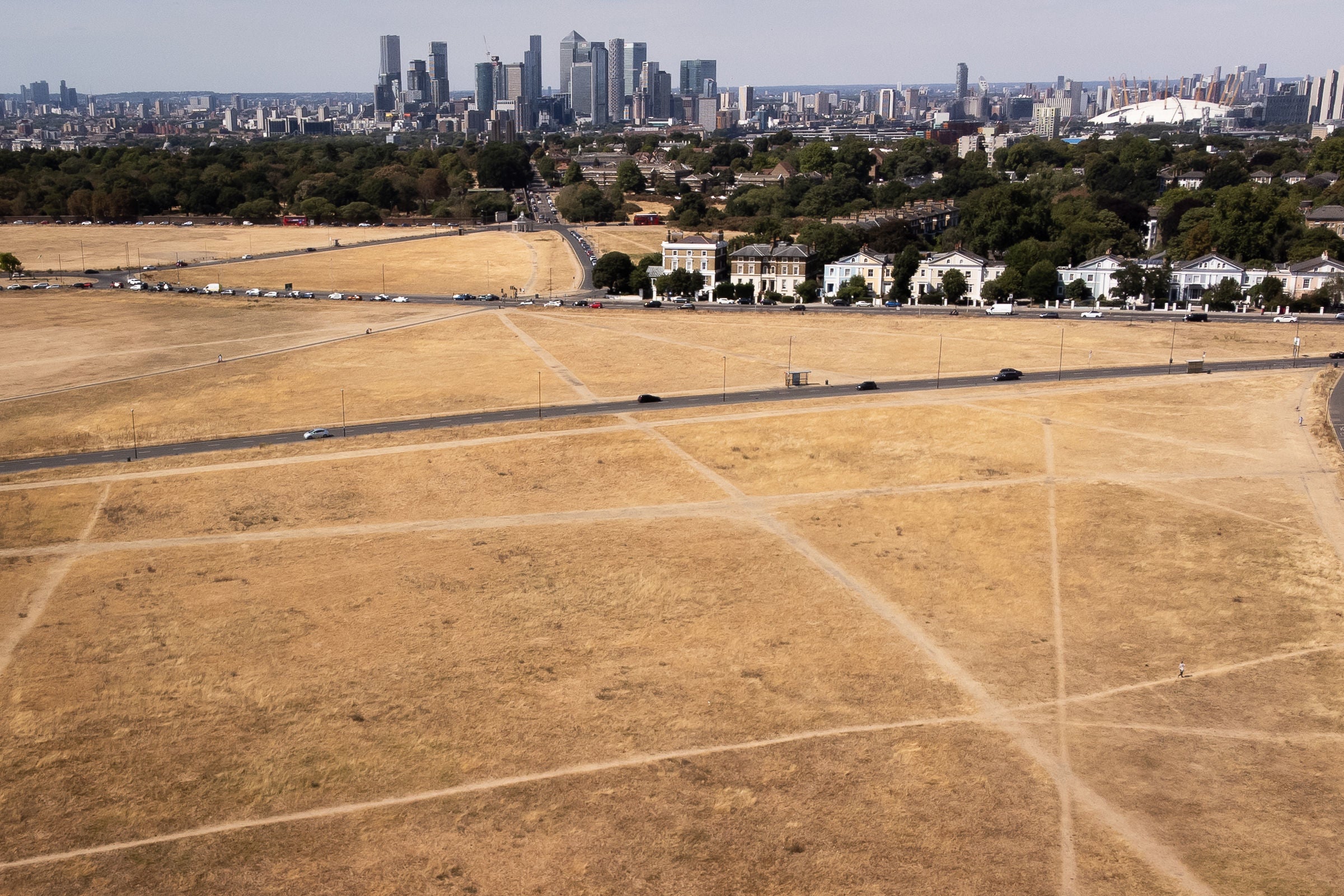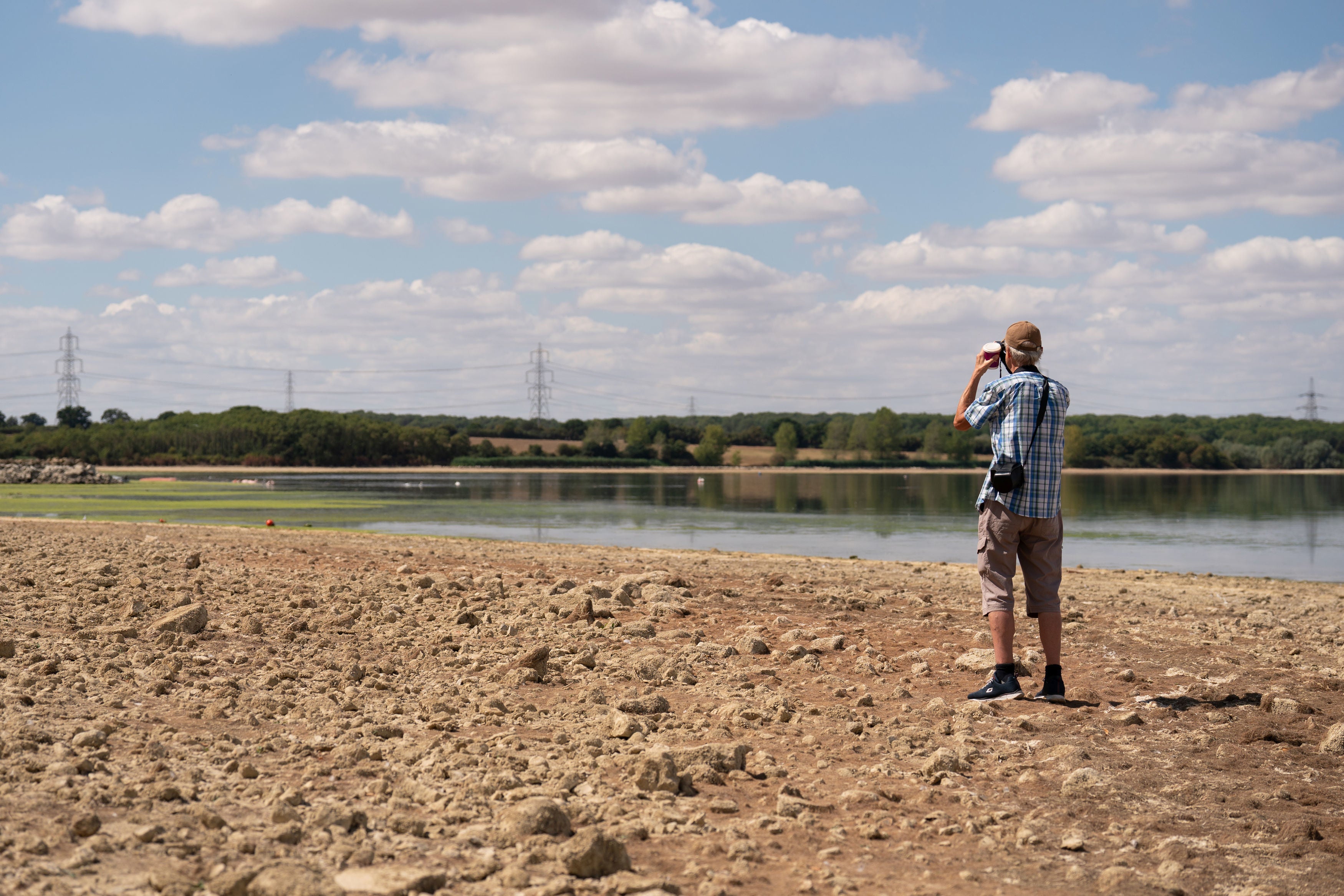Heat health alert comes into effect in England as country braces for another heatwave
Scientists have warned the climate crisis is making heatwaves more likely, longer and hotter

Your support helps us to tell the story
From reproductive rights to climate change to Big Tech, The Independent is on the ground when the story is developing. Whether it's investigating the financials of Elon Musk's pro-Trump PAC or producing our latest documentary, 'The A Word', which shines a light on the American women fighting for reproductive rights, we know how important it is to parse out the facts from the messaging.
At such a critical moment in US history, we need reporters on the ground. Your donation allows us to keep sending journalists to speak to both sides of the story.
The Independent is trusted by Americans across the entire political spectrum. And unlike many other quality news outlets, we choose not to lock Americans out of our reporting and analysis with paywalls. We believe quality journalism should be available to everyone, paid for by those who can afford it.
Your support makes all the difference.An alert urging the elderly and vulnerable to prepare for soaring temperatures has come into effect for all regions of England as large parts of the UK brace for another heatwave.
The level 3 alert issued by the UK Health Security Agency (UKHSA) is in place from midday on Tuesday until Sunday at 11pm.
It is designed to act as an early warning system to help healthcare professionals manage the period of extreme heat.
The alert requires social and healthcare services to carry out specific actions for high-risk groups, such as visiting or phoning high-risk people or regularly recording temperatures in patients’ rooms.
Climate scientists say heatwaves will only become more frequent, longer and more extreme as humans continue to pump planet-heating greenhouse gas emissions into the atmosphere.
UKHSA and the Met Office are calling on people to look out for others, especially older people, young children and babies and those with underlying health conditions.
“Heat can have a fast impact on health,” said Dr Agostinho Sousa, head of extreme events and health protection at UKHSA. “It’s important to ensure that people who are more vulnerable – elderly people who live alone and people with underlying health conditions – are prepared for coping during the hot weather.”
“The most important advice is to ensure they stay hydrated, keep cool and take steps to prevent their homes from overheating.”
The Met Office has also issued a four-day warning for extreme heat in parts of England and Wales starting on Thursday and lasting until 11.59 pm on Sunday.
It says vulnerable people’s health is likely to be impacted, while others may be affected by sunburn, dehydration, nausea and fatigue.

The hottest temperatures recorded are expected to be in central and southern England and Wales on Friday and Saturday, with the mercury forecast to hit highs of 35C or even 36C on Saturday.
In other parts of the country, temperatures will reach the high 20s and low 30s as an area of high pressure extends over much of the country, the Met Office said.
Met Office deputy chief meteorologist, Tony Wardle, said temperatures would build “day-on-day” throughout the week.
“Coupled with the high daytime temperatures will be continued warm nights, with the mercury expected to drop to only around low 20s Celsius for some areas in the south,” he said.
It comes after the UK smashed through previous temperature records last month, with Coningsby in Lincolnshire recording 40.3C – a new all-time record.

Heatwaves are the deadliest extreme weather event in the UK, and in England, there are on average 2,000 heat-related deaths every year, according to the Met Office.
One scientist estimated last month that almost 1,000 people may have died due to UK heatwave temperatures during the heatwave last month.
A group of international climate scientists found that the heatwave recorded last month was made at least 10 times more likely due to the climate crisis and said extreme temperatures in Western Europe are rising faster than climate models predicted.


Join our commenting forum
Join thought-provoking conversations, follow other Independent readers and see their replies
Comments